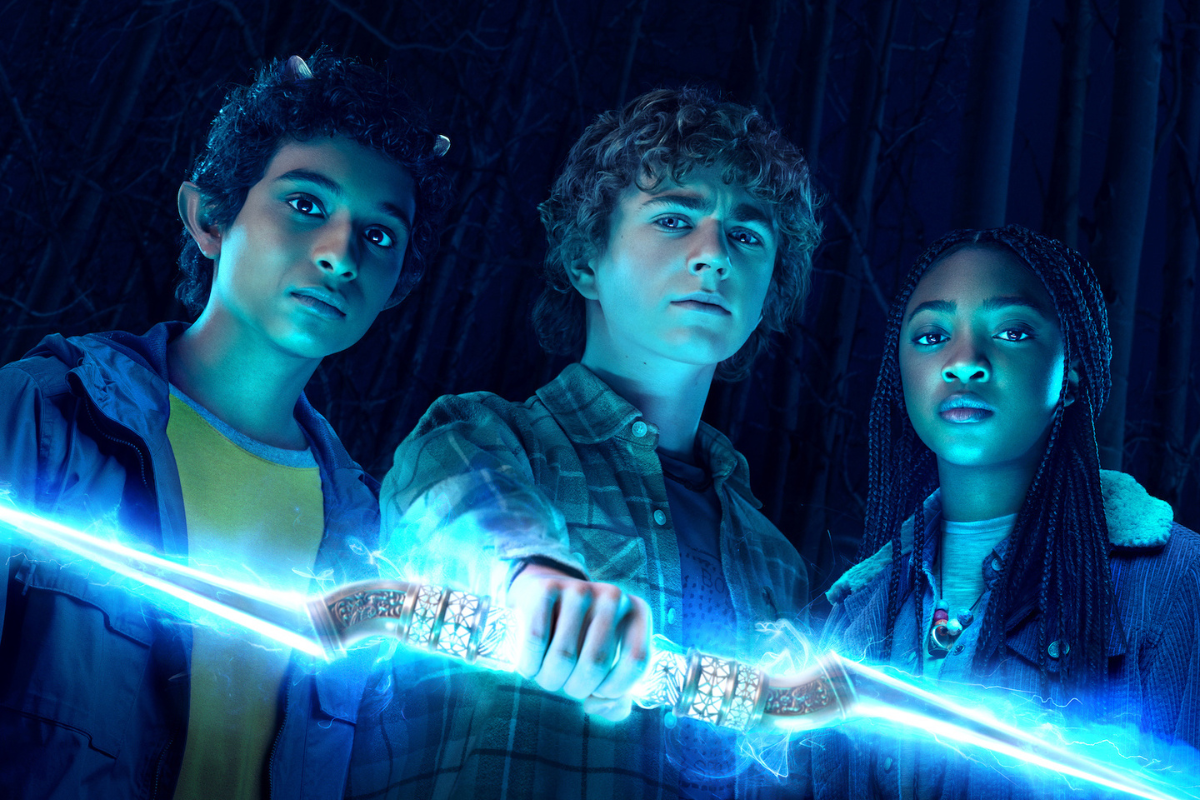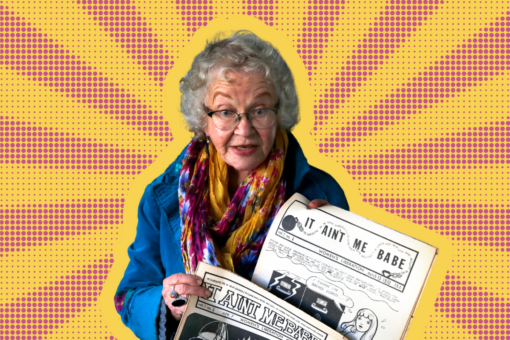It’s here! It’s finally here! The Percy Jackson revival we’ve all been waiting for since its announcement in June 2022 is finally releasing in batches on Disney+. After the failures that were the two movies released in 2010 and 2013, this TV series — with a godly cast — will hopefully redeem the iconic book series and bring Percy, Annabeth and Grover to life.
My little nerd heart is so excited about this series. Like most children in the early 2000s, I was caught in the wave that was Greek Gods and Monsters, guided by Rick Riordan’s gentle hands, and from the beginning my experience of the Percy Jackson series was a Jewish one.
The original book series, “Percy Jackson & the Olympians,” follows a seemingly average boy named Percy as he discovers that he is the son of Poseidon. As his life grows too dangerous for a normal upbringing in New York City, he seeks refuge in a summer camp for demigods in Long Island: Camp Half-Blood. This is where he learns that his best friend, Grover Underwood, is actually a satyr sent to protect him and where he meets Annabeth Chase, daughter of Athena and the future love of his life. Around the same time, Zeus’ lightning bolt is stolen. All fingers point at Percy; quests and chaos ensue.
Out of this chaos emerges some of the best representation a book series could have. Riordan is known for his role in paving the way for diverse characters in middle-grade novels through the lenses of gender, disability, sexuality, ethnicity and race. In fact, his series started as bedtime stories he told his son, who has dyslexia and attention deficit hyperactivity disorder (ADHD). He gave Percy dyslexia and ADHD, making them into gifts inherited from his godly side rather than learning difficulties.
“There are so many other children out there like my son who are struggling with these issues and feel there is something wrong with them, and there’s not,” Riordan told The Guardian in 2010. This thought, based in inclusion, carries itself throughout all the identities of his characters. As a result, he has managed to make sure that his characters would reflect his readership, garnering him a fanbase that feels joy at reading themselves in his work.
So, naturally, I, a Jew, paid attention when I found Jewish characters.
There are three known Jewish characters in the world of Riordan, (or the Riordanverse as we fans lovingly call it) and two of them, Cecil Markowitz and Julia Feingold, are children of Hermes, the Greek god of merchants, money-making and trickery. In Riordan’s books, children of Hermes are pranksters whose most prominent ability is thieving. This forces the Jewish characters in Riordan’s world into something akin to an antisemitic cartoon calling the god of Jews ‘money,’ and insinuating that we are only being able to exist within the realms of finance. However, I don’t think that was on purpose — I think Riordan fell victim to the fact that antisemitism is pervasive in most mythologies. Cecil and Julia are still very lovable characters. Cecil appears in Riordan’s continuing series where he introduces ancient Roman mythology, “The Heroes of Olympus,” as an expert saboteur aiding in a pinnacle battle, while Julia appears in “The Trials of Apollo” as someone making a home for other demigods in Camp Half-Blood.
Still, this was not the sort of representation that made me want to continue reading, especially since they are only identified as Jewish by their last names and their appearances are recent in comparison to the series overall runtime. The “Percy Jackson” series has been around since 2005, yet Cecil only appears in the world in 2014 while Julia only appears in 2016. Nevertheless, I carried on reading with the hope that Riordan would correct these mistakes in future books. Luckily, he did not disappoint.
In “The Trials of Apollo: The Tyrant’s Tomb,” one of my favorite fictional Jewish characters of all time is brought to life: Lavinia Asimov, the daughter of Terpsichore, the Roman Muse of dance, and a Russian ballet dancer, Sergei Asimov. Lavinia sports pink hair, a Star of David, an unwieldy weapon (canonically for style) and falls in love with poisonous dryads. She is a gay Jewish icon and I love her.
After two Jewish characters that fell into antisemitic tropes, Lavinia comes around to show that not all Jewish demigods are children of Hermes and that not all Jewish children are destined to a life of finances and mischief. Her character provides young Jewish children — especially young queer Jewish children — the opportunity to find themselves in her and her life of self-expression and joy.
Despite my disappointment at the timeline for the inclusion of Jewish characters in the world of “Percy Jackson,” what’s most beautiful about Lavinia is that she is a late addition to Riordan’s highly diverse cast. Lavinia is proof that authors can grow and acknowledge their mistakes instead of doubling down on bigotry. With Lavinia, Riordan proves that there is space for it.
Listen, don’t tell my Rabbi or the Maccabees but when I was 10 years old I was so engrossed in the first book that I didn’t want to put it down when it was time to go to services for my once-a-week Hebrew school. I noticed that the hardcover copy of the first book was the same color as the prayer book we used, so naturally I continued reading during services. I think of that child and how much joy they would have felt to read someone like Lavinia, someone who broke the rules and expressed themselves proudly. Now, I’m glad to know that there are 10-year-olds out there who will get to.
As more of the Percy Jackson series continues to release on Disney+, I hope to see Cecil, Julia and Lavinia make an appearance. I hope to see them laugh and smile and fight side-by-side with the main characters. I hope that you see them and fall in love with them. Who knows? Maybe we’ll even get lucky and have another Jewish character created just for the show.



